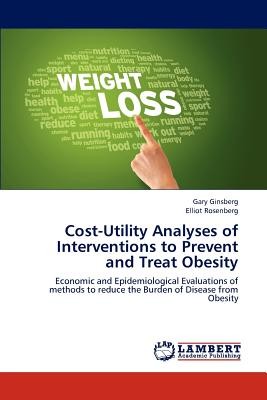
- We will send in 10–14 business days.
- Author: Gary Ginsberg
- Publisher: LAP Lambert Academic Publishing
- ISBN-10: 3659160466
- ISBN-13: 9783659160462
- Format: 15.2 x 22.9 x 0.5 cm, softcover
- Language: English
- SAVE -10% with code: EXTRA
Cost-Utility Analyses of Interventions to Prevent and Treat Obesity (e-book) (used book) | bookbook.eu
Reviews
Description
In the developed world, obesity is a serious risk factor for many chronic diseases. Besides its morbidity and mortality burden, Obesity generates a huge cost burden on countries health services. This study aims to assist policymakers in their efforts to prioritize interventions to prevent and treat obesity by calculating cost-utility ratios of the treatment modes of dietary counseling, pharmaceutical interventions and bariatric surgery.Generally, the majority of interventions were found to be either cost-saving or very cost-effective in an Israeli setting. Differences in cost-effectiveness exist within each treatment modality, but the data are not robust enough to facilitate within-modality prioritization at this point. Readers can use the methodologies in this paper to generate cost-utility ratios for their own country-specific interventions.
EXTRA 10 % discount with code: EXTRA
The promotion ends in 11d.11:34:53
The discount code is valid when purchasing from 10 €. Discounts do not stack.
- Author: Gary Ginsberg
- Publisher: LAP Lambert Academic Publishing
- ISBN-10: 3659160466
- ISBN-13: 9783659160462
- Format: 15.2 x 22.9 x 0.5 cm, softcover
- Language: English English
In the developed world, obesity is a serious risk factor for many chronic diseases. Besides its morbidity and mortality burden, Obesity generates a huge cost burden on countries health services. This study aims to assist policymakers in their efforts to prioritize interventions to prevent and treat obesity by calculating cost-utility ratios of the treatment modes of dietary counseling, pharmaceutical interventions and bariatric surgery.Generally, the majority of interventions were found to be either cost-saving or very cost-effective in an Israeli setting. Differences in cost-effectiveness exist within each treatment modality, but the data are not robust enough to facilitate within-modality prioritization at this point. Readers can use the methodologies in this paper to generate cost-utility ratios for their own country-specific interventions.


Reviews